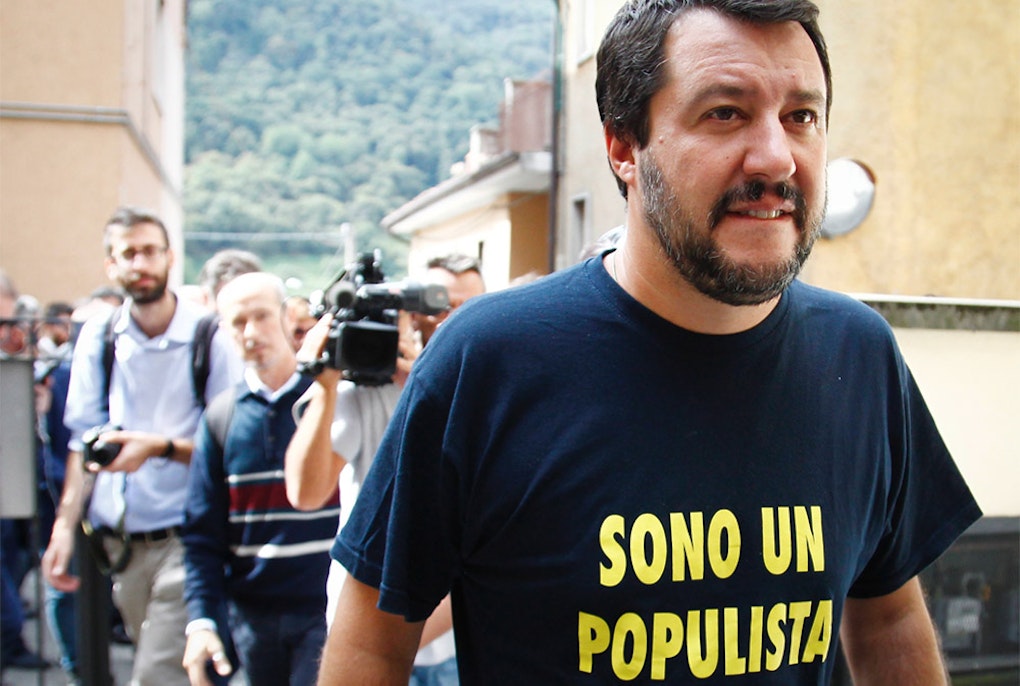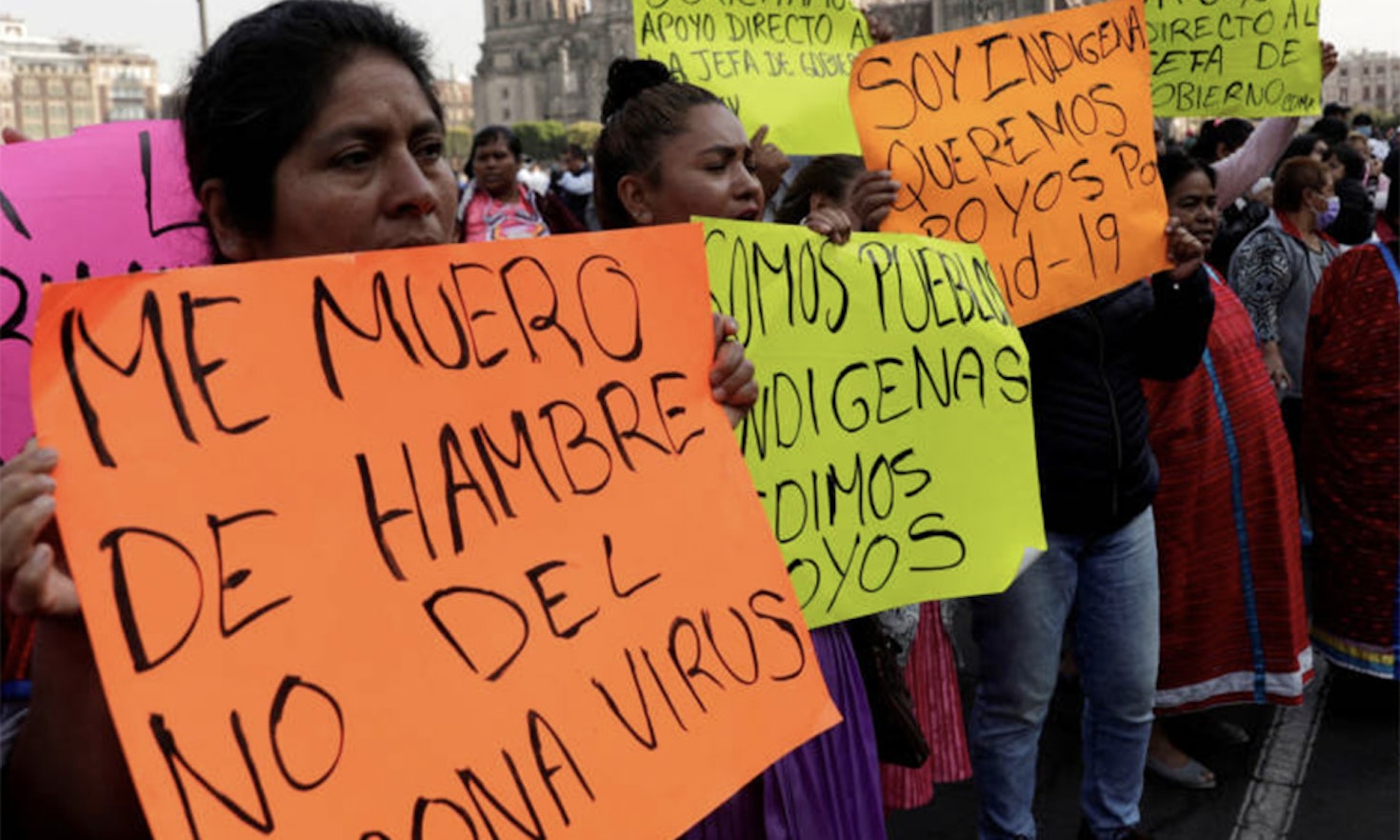
Trust Me, I’m a Populist: Populismus in der Krise
 Mirjam Gruber
Mirjam Gruber
Does wealth equate to health? In his piece, Carlos Cruz Infante discusses the oppositions in play across Latin America and their relationship to the devastating and far-reaching impacts of Covid-19.
On February 25th, Brazilian authorities announced the first case of Covid-19 Latin America. Two days later, Argentina’s government did the same. By mid-March, almost every country in Latin America had reported at least one victim of the pandemic. Recently, Latin America has surpassed the US and Europe with its number of infected cases, of which Brazil alone, has reported about 700,000 infected cases, more than Italy and Spain combined. The European tragedy had already terrified the judicious leaders of Latin America. Italy and Spain, developed countries from a Latin American perspective, had suffered devastating consequences. What would happen to us next when the rest of the world followed suit?
The terror felt by Latin American leaders was well-founded. According to the Global Health Security Index 2019, which measures the preparedness of a country for epidemics and pandemics from 0 to 100, the European Union (EU) score is 68.2, and the average of the high-income countries is 51.9. Latin America’s is just 40.2.
If we look closely at those figures, we will note how low state capacities in most Latin American countries become evident when discussing public health. According to the World Bank, in Latin America, government health expenditure is 12.4% of the general government expenditure. In the EU, it is almost 17%. The health expenditure per capita – both private and public – in Latin America is US$1.136. In the EU, it is more than triple that – US$3.846. As we should expect, low investment in health results in insufficient infrastructure to take care of the population. Whereas in Latin America we have 2.3 physicians and 2.2 hospital beds per 1,000 inhabitants, in the European Union those figures rise to 3.6 and 5.6, respectively. The health issue becomes greater when considering Latin American heterogeneity, both between and within its countries. As Alejandro Gaviria, the former Colombian health minister, declared: “You have Europe and Africa on the same continent”. For instance, whereas Argentina has five hospital beds per 10,000 inhabitants – close to the EU’s average – Colombia only has 1.5 -lower than the Latin American mean-.
The problem does not stop there. Even if we could fix the healthcare system overnight, the pandemic’s consequences will be disastrous for Latin America. Let us see why.
The pandemic has brought about one of Latin America’s society’s most critical problems, that of its informality. According to the International Labour Organization (ILO), around 53% of Latin America’s employment is informal. Meaning those jobs don’t have any contracts, social protection, pension contributions, or regular salaries. Just for you to compare, that figure is only 14.3% for Northern, Southern, and Western Europe.

Source: Women and men in the informal economy: a statistical picture (third edition) / International Labour Office – Geneva: ILO, 2018
As with the health infrastructure, informal employment’s magnitude varies among the Latin American countries. At one extreme, we have Uruguay, where only 1 out of 4 jobs is precarious – lower than Spain-; on the other, there is Bolivia, where informality surpasses 80%, as in Congo. This high rate of informal employment means that any lockdown will prevent people from dying from the virus but means that hunger will kill them instead. The Social Panorama of Latin America 2019 found that “in a scenario of no labour income whatsoever, the probability of maintaining socioeconomic status is low: just 14% of people would maintain their original position and the risk of falling into poverty increases to 55%” (ECLAC, 2019: 72). As the following graphic depicts, if the low-income non-poor households stop receiving any income, their probability of falling into poverty rises to 89.8%.

Source: Economic Commission for Latin America and the Caribbean (ECLAC), on the basis of Household Survey Data Bank (BADEHOG).a The countries included are: Argentina, the Bolivarian Republic of Venezuela, Brazil, Chile, Colombia, Costa Rica, the Dominican Republic, Ecuador, El Salvador, Guatemala, Honduras, Mexico, Nicaragua, Panama, Paraguay, Peru, the Plurinational State of Bolivia and Uruguay.
Yes, it is such a tragedy: 9 out of 10 people in the lower income group could end in penury after the pandemic. In some regions of Italy, where informality is only 19% and whose state has invested far more than an average Latin American government could, informal workers have had to ask for charity. What could we expect then for Latin American countries?
Although the International Monetary Fund (IMF) forecasts Latin America’s economic growth will contract less than EU’s (-5.2% in 2020, recovering in 2021 with a growth rate of 3.4%), it could distract us from the long-term problems of the region.
The first of these problems will be the soaring of poverty. Given the pandemic measures, the poor in Latin America could increase between 14 and 22 million (ECLAC, 2020). If the virus does not kill us, hunger will. In the second term, poverty will aggravate further social issues. Domestic violence has increased dramatically already due to the lockdowns. Criminality, high until now in the region, will probably rise when the most vulnerable Latin Americans have no options left. In the third place, commodity-based economy has arrived at its most critical point in Latin America’s history. China’s demand for metals has dropped, and the global oil demand has plunged. That contraction has hugely affected Brazil, Colombia, Venezuela, Peru, and Chile, and will also impact the trading volumes among the Latin American countries. Sooner than later, this will be in the center of the Latin American economists’ discussions. Last but not least, the pandemic has intensified institutional and political debates. How desirable are democracy and decentralisation when a catastrophe such as Covid-19 demands quick and firm policies which preclude any negotiation? How do we keep fiscal responsibility when our voters – and the political opposition – are pushing for greater public spending? How do we provide a basic welfare net considering the low capacity of Latin American governments and difficult oncoming years?
Then, you see, that Covid-19 may not be the deadliest disease in Latin America.
 | Carlos Cruz Infante is a Sociologist and an MBA. He researches the policy and politics of Latin America. He is currently an advisor of the Chile’s Ministry of Housing and former Chief of Strategic Content of the General Secretariat of the Chilean Government. Carlos is concerned about Latin America’s future after the Covid-19. However, he sees an excellent opportunity to make profound institutional reforms in the region and to set the foundations for its development. |
This content is licensed under a Creative Commons Attribution 4.0 International license.